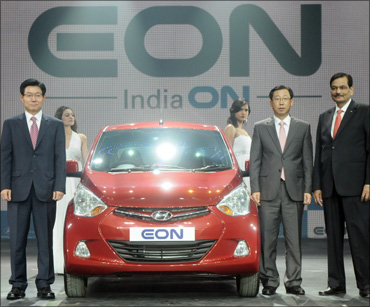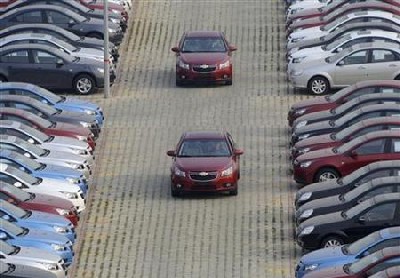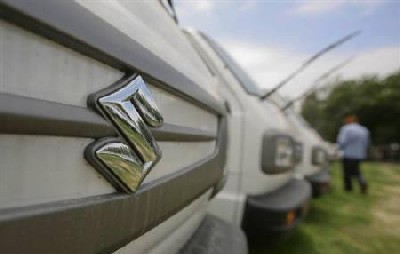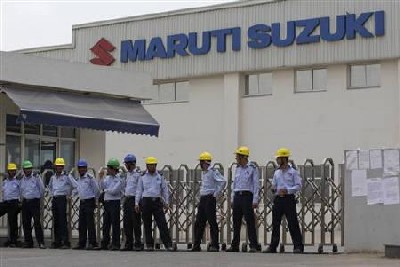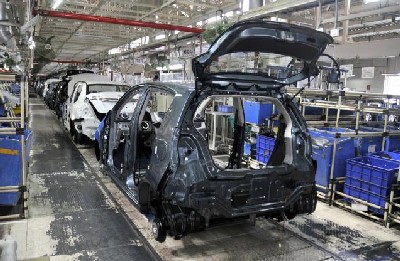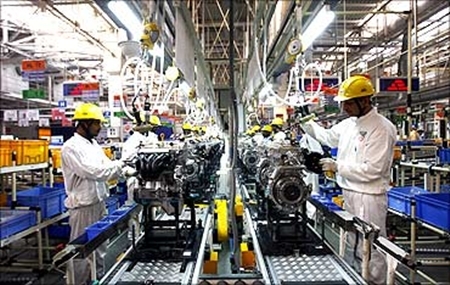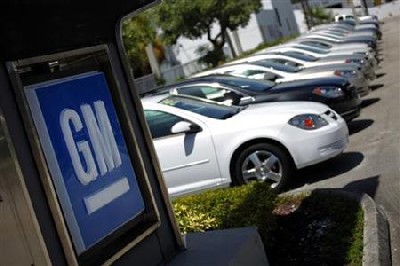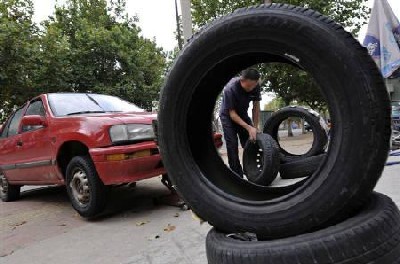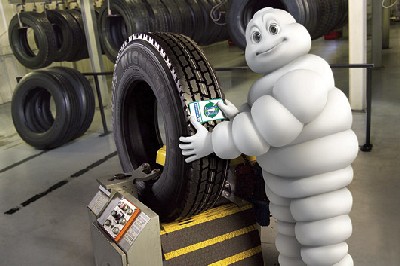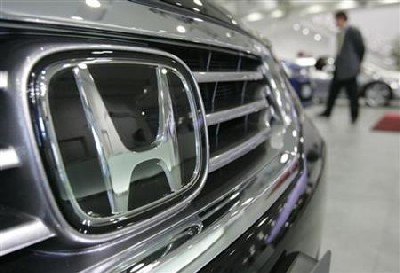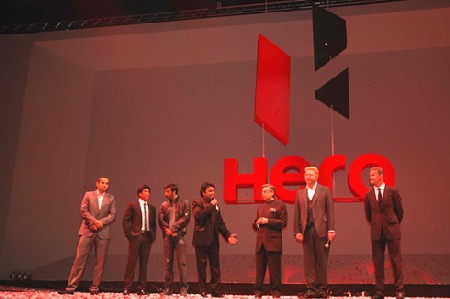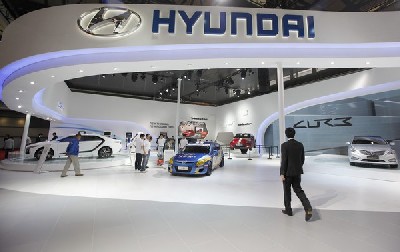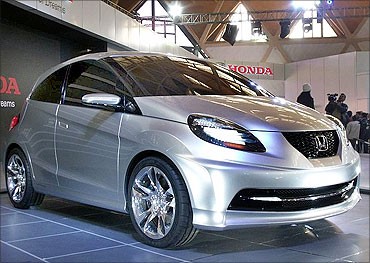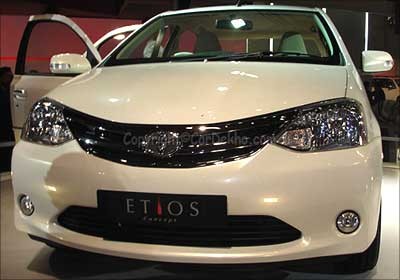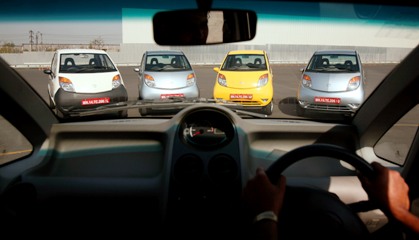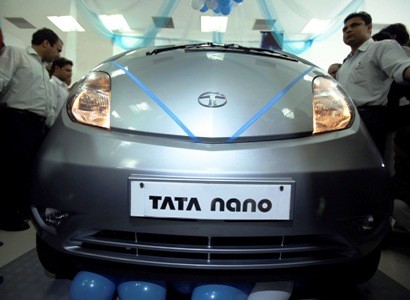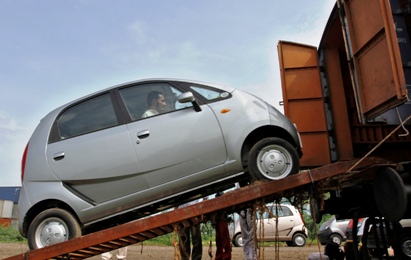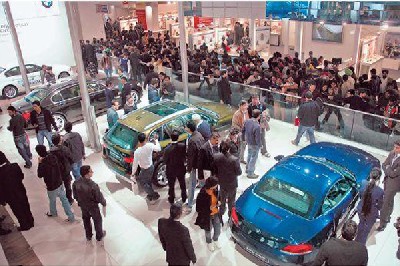 | « Back to article | Print this article |
Great start, sad ending: That's 2011 for auto sector
A year that began with a bang only to fizzle out in the end with car sales posting the steepest fall in nearly 11 years; a year marred by strikes -- 2011 will be one that the Indian automobile industry would like to forget in a hurry.
At a time when sales were hit badly by higher interest rates on automobile loans and costlier fuel, crippling labour disputes affecting firms like Maruti Suzuki, General Motors and MRF made the industry hit the headlines for all the wrong reasons.
Nevertheless, one of the major milestones for the year for the industry was the launch of a new brand identity by the B M Munjal-led Hero Group, following the break-up of erstwhile Hero Honda, and announced its strategies for a solo journey without former Japanese partner Honda.
Click NEXT to read more...
Great start, sad ending: That's 2011 for auto sector
The year gone by also witnessed some exciting new model launches, including Hyundai's 800-cc car Eon, and some intense moments between the West Bengal government and Tata Motors on the return of land in Singur following the relocation of the Nano plant.
Yet when it came to sales, it was a case of gravity finally catching up with the zooming sales that were witnessed in the previous year.
After bidding adieu to 2008-09 slowdown and posting robust growth of over 25 per cent last fiscal, it is now likely to see a low, single-digit increase in vehicle sales in 2011-12.
Click NEXT to read more...
Great start, sad ending: That's 2011 for auto sector
Indian car sales hit an all-time monthly high in January, 2011, registering a jump of 26.28 per cent to 1,84,332 units.
However, with rising interest rates and fuel prices, the sales started moderating during the year.
With rising inflation, RBI started increasing the key policy rates, leading to a hike in interest rates on auto loans.
Click NEXT to read more...
Great start, sad ending: That's 2011 for auto sector
It was a double blow for the auto industry as fuel prices, especially petrol, kept on rising throughout the year. Vehicle sales started falling again with the industry fearing a comeback of the ghost called 'recession'.
The Society of Indian Automobile Manufacturers (SIAM) lowered its growth forecast for 2011-12 twice during 2011 after announcing it for the first time at the beginning of the fiscal.
Click NEXT to read more...
Great start, sad ending: That's 2011 for auto sector
It is expected to revise it downward again in January on account of sluggish demand in the last couple of months.
On a year-on-year basis, car sales in India have been declining since July, mainly due to the severe impact of labour issues on Maruti Suzuki India's (MSI) production.
Sales registered their steepest monthly decline in nearly 11 years in October this year, tanking by 23.77 per cent on account of a huge drop in output by MSI due to labour trouble, coupled with high interest rates and fuel prices.
Click NEXT to read more...
Great start, sad ending: That's 2011 for auto sector
The car segment, however, witnessed a turnaround with 7 per cent growth in sales in November on account of a marginal revival in demand, coupled with a low base.
Sales in December are likely to be lower than the November numbers, SIAM said.
Labour strikes, which hit the country's largest car-maker Maruti Suzuki India severely, did not spare other auto-makers either.
Click NEXT to read more...
Great start, sad ending: That's 2011 for auto sector
MSI suffered a total of 60 days of production losses due to three instances of labour unrest at its Manesar plant, which mainly produces the Swift.
In June, a 13-day strike brought production to a standstill.
This was followed by another standoff on August 29 between the management and the workers, which lasted for 33 days.
Click NEXT to read more...
Great start, sad ending: That's 2011 for auto sector
In October, the company saw its workers again go on a 14-day strike that ended after the signing of a tripartite pact between the management, workers and Haryana government officials.
The company is at present in the process of ramping up its output to normal levels.
Click NEXT to read more...
Great start, sad ending: That's 2011 for auto sector
In all, MSI lost production of over 50,000 units, translating into a revenue loss of over Rs 2,000 crore (Rs 20 billion) during the labour unrest.
General Motors, too, was the victim of a severe labour dispute during the year.
Its Halol facility witnessed a 50-day loss of production when some workers resorted to a strike, protesting the transfer of some employees to dealership outlets and opposing a long-term wage settlement agreement signed in December, 2010.
Click NEXT to read more...
Great start, sad ending: That's 2011 for auto sector
Although the company did not share the amount of loss due to this episode, which started on March 16, workers estimated the production loss at between 2,000 units and 2,500 units.
This strike was the second such incident at Halol in five months.
The plant came to a halt for four days when workers went on a strike from October 29, 2010, demanding wage hikes.
Click NEXT to read more...
Great start, sad ending: That's 2011 for auto sector
Tyre-maker Ceat also saw around 1,600 employees going on a flash strike for 23 days at its Nashik plant from September 29, following a tiff between a contractual labourer and a union worker.
The company rolls out around 200 tonne tyres of various types from the plant.
The strike was called off after Sanjay Services, the labour contract firm, withdrew its services to the company.
Click NEXT to read more...
Great start, sad ending: That's 2011 for auto sector
This was one of the main demands by the union, besides removal of Ceat's Personnel Manager Rajendra Joshi.
In June, production at tyre-maker MRF's Kottayam plant in Kerala was completely affected for four days due to a labour strike and the company had declared a lockout.
Not only man-made situations that struck the Indian auto industry, natural calamities have also impacted companies very severely.
Click NEXT to read more...
Great start, sad ending: That's 2011 for auto sector
The devastating earthquake and tsunami in Japan took a heavy toll on several car-makers in India, such as Maruti Suzuki, Toyota and Honda.
Toyota and Honda had to cut its Indian production by more than half due to non-availability of parts, while the import of several parts by Maruti Suzuki was impacted.
When the car-makers were trying to stabilise themselves from this blow, floods in Thailand came as a double whammy.
Click NEXT to read more...
Great start, sad ending: That's 2011 for auto sector
Vehicle-makers import many critical parts from this Asian country and the flood impacted it badly.
Honda suffered the worst due to the Thailand floods and its production is still far below normal levels.
Nevertheless, not all was gloom and doom in 2011 and some raised a toast and said cheers too!
Click NEXT to read more...
Great start, sad ending: That's 2011 for auto sector
India's largest two-wheeler maker, Hero MotoCorp (formerly Hero Honda), announced a new brand identity at a glittering event in London that was attended by tennis player Boris Becker, singer Akon, F1 driver David Coulthard and Bollywood superstar Shah Rukh Khan.
The B M Munjal-led Hero Group announced plans to set up two new manufacturing plants in the country and will pump in more investments in the next five years than it has done in the last 27 years during its partnership with Honda.
Click NEXT to read more...
Great start, sad ending: That's 2011 for auto sector
Amid the slowdown blues, Korean auto major Hyundai Motor Co launched its entry-level compact car Eon that has been developed specifically for the Indian market.
The 814-cc small car was pitted against India's best-selling Alto model from rival MSI's stable.
Click NEXT to read more...
Great start, sad ending: That's 2011 for auto sector
Although Hyundai was planning to sell about 12,000 units of the Eon every month, sales are getting affected because of the overall negative sentiment in the market.
It is currently selling around 6,000-7,000 units every month.
During the year, Honda announced a foray into the highly competitive low-price compact car segment in India with the launch of its Brio model, competing against the likes of the Hyundai i10, Maruti WagonR and General Motors Chevrolet Beat, which are priced in a similar range.
Click NEXT to read more...
Great start, sad ending: That's 2011 for auto sector
Toyota Kirloskar Motor also entered the small-car segment with Liva, the hatchback version of its sedan Etios.
The company later introduced it with a diesel option as well.
The year witnessed continuation of the bad blood between West Bengal's ruling party, the Trinamool Congress and Tata Motors, which had shifted its Nano plant out of the state in 2008 following violent protests.
Click NEXT to read more...
Great start, sad ending: That's 2011 for auto sector
The 997 acres of land leased to Tata Motors was vested by the state government vide the Singur Land Rehabilitation and Development Act, 2011, for return to farmers.
Later, a division bench had stayed distribution of 545 acres of land leased to Tata Motors on an application by the auto-maker, which appealed against the single bench order upholding the vesting of the Singur land leased to it.
Click NEXT to read more...
Great start, sad ending: That's 2011 for auto sector
After that, 31 component manufacturers had moved the court seeking a stay on distribution of the land allotted to them.
The bench stayed distribution of the 290 acres of land allotted to 57 vendors of car components till disposal of the cases challenging the vesting of the land by the government.
Last month, the Calcutta High Court granted a stay on distribution of land allotted to vendors at Singur beside the Tata Motors' Nano project plot by the West Bengal government.
Click NEXT to read more...
Great start, sad ending: That's 2011 for auto sector
In other developments during the year, in May, Cabinet approved divestment of the government's entire 95.38 per cent stake in three-wheeler maker Scooters India, which has been suffering losses since 2002-03.
Its entire net worth had eroded by 2008-09.
However, toward the end of the year, the government put on hold the proposed sale of the sick PSU and decided to review the proposal "holistically" before taking a final decision amid volatile market conditions.
Click NEXT to read more...
Great start, sad ending: That's 2011 for auto sector
After a rough ride in 2011, the Indian auto industry is looking with optimism to the New Year.
The industry is hoping that the forthcoming Auto Expo in the national capital will provide the much-needed boost to the sector and will help it cruise in the year ahead.

